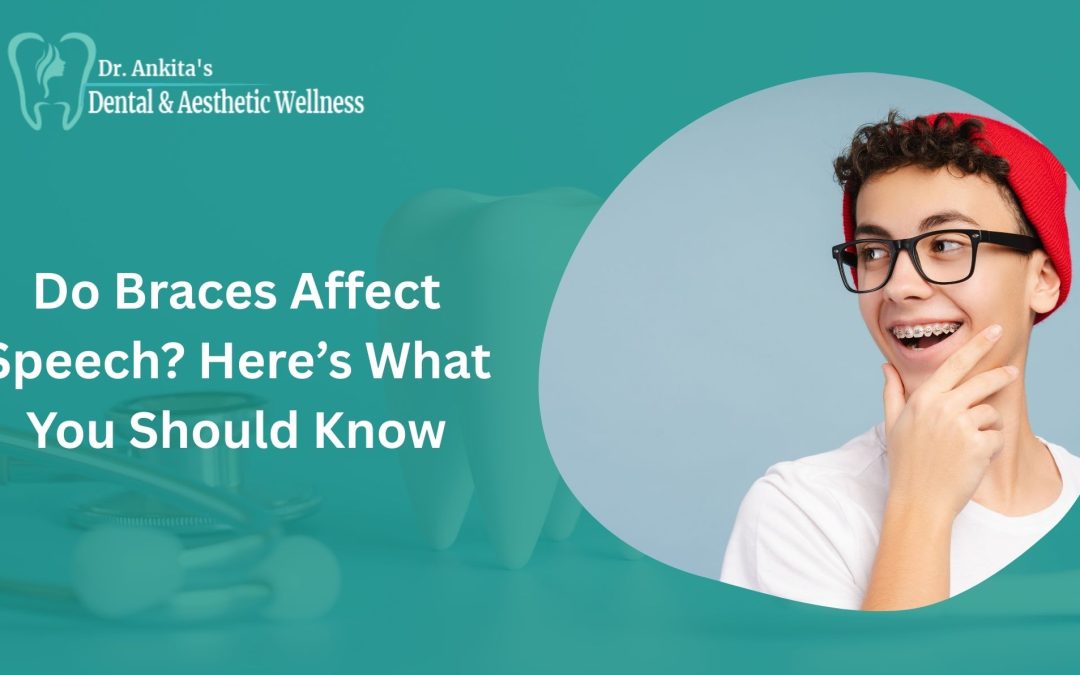When people think about braces, the first things that often come to mind are straight teeth and improved smiles. However, many individuals considering orthodontic treatment also worry about whether braces will impact their speech. Since braces involve placing metal or ceramic brackets and wires on your teeth, it’s natural to wonder if they might interfere with the way you pronounce words.
The truth is, braces can affect speech—especially in the beginning—but these effects are usually temporary. With time, your tongue and lips adapt, and most people regain clear speech without long-term issues. Let’s dive deeper into how braces may influence speech and what you can do to adjust quickly.
1. Why Braces Can Affect Your Speech Initially
Speech depends heavily on how your tongue, lips, and teeth work together. When braces are placed, they create a new surface in your mouth, which can temporarily disrupt this coordination.
Here are some common reasons why braces might affect speech:
- Tongue adjustment: Your tongue touches your teeth and palate to form certain sounds. With braces in place, your tongue has to “relearn” these movements.
- Increased saliva: Braces can cause your mouth to produce more saliva, which may slightly impact pronunciation at first.
- Minor discomfort: Initial soreness or irritation from new braces can make you less confident while speaking.
These challenges are most noticeable with certain sounds—particularly “s,” “sh,” “z,” and “ch.” Some patients may develop a mild lisp during the first few weeks.
2. How Long Does It Take to Adjust?
The good news is that speech issues caused by braces are usually short-lived. Most people adjust within a few days to a few weeks, as their tongue and lips get used to the new positioning. Children often adapt faster, while adults may need a bit more practice.
It’s also worth noting that modern orthodontic technology, such as smaller brackets and clear aligners, minimizes speech disruption compared to older, bulkier braces.
3. Tips to Overcome Speech Difficulties with Braces
If you experience temporary changes in speech after getting braces, don’t worry—there are plenty of strategies to help you adjust more quickly:
a) Practice Speaking
Reading aloud, practicing tongue twisters, or singing can help train your mouth to adapt to the new setup. Repetition is key in overcoming lisps or unclear sounds.
b) Slow Down
Speaking more slowly and carefully allows your tongue to adjust its placement with braces. Over time, Crowns & Bridges will naturally improve clarity.
c) Stay Hydrated
Drinking water reduces excess saliva and keeps your mouth comfortable, making speech clearer.
d) Consider Orthodontic Wax
If braces cause irritation on the inside of your cheeks or lips, applying orthodontic wax can reduce discomfort and make speaking easier.
e) Be Patient
Remember, speech difficulties are temporary. With practice and time, your mouth will adapt, and your speech will return to normal.
4. Will Speech Go Back to Normal After Braces?
Absolutely. Once your teeth are aligned and your braces are removed, any temporary changes in speech will disappear. In fact, for some individuals, correcting issues like gaps, bite problems, or misaligned teeth may actually improve speech clarity in the long run.
Conclusion
Braces may cause slight changes in speech initially, but these effects are temporary and manageable. With practice, patience, and proper care, most people adjust within a few weeks. In fact, orthodontic treatment often results in better long-term speech clarity and, of course, a healthier, more confident smile.
If you’re considering braces or other orthodontic treatments, it’s essential to work with trusted experts who can guide you through every step. Dental & Aesthetics provide the best services regarding this, ensuring you get not only a perfect smile but also the comfort and confidence you deserve throughout your treatment journey.

